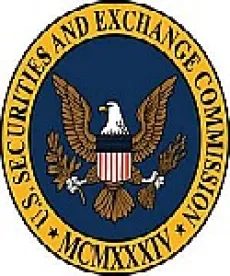In Wadler v. Bio-Rad Laboratories, Inc., No. 17-16193, 2019 WL 924827 (9th Cir. Feb. 26, 2019), the United States Court of Appeals for the Ninth Circuit held that statutes, including the Foreign Corrupt Practices Act (“FCPA”), do not constitute “rule[s] or regulation[s] of the Securities and Exchange Commission” (“SEC”) for purposes of determining whether an employee engaged in protected activity in a whistleblower claim under Section 806 of the Sarbanes-Oxley Act of 2002 (“SOX”). This decision clarifies the proper application of the express statutory language of Section 806.
Plaintiff was the general counsel for Bio-Rad Laboratories, Inc. (“Bio-Rad”). Beginning in 2009, plaintiff discovered that Bio-Rad salesmen had engaged in potential violations of the FCPA’s anti-bribery and record-keeping provisions. At his recommendation, Bio-Rad hired an outside attorney to investigate. The investigation identified several red flags, but no direct evidence of FCPA violations. Later, in 2012, an audit revealed that Bio-Rad owed a significant amount of money to its licensor due to missing documentation. Upon locating the documents, plaintiff thought they showed potential bribery. He advised Bio-Rad’s CEO, who indicated that he was not going to do anything about it. Plaintiff also discovered that Bio-Rad employees had entered into unauthorized contracts that did not include FCPA compliance provisions. In 2013, plaintiff delivered a memorandum to Bio-Rad’s board of directors, reporting what he thought were violations of the FCPA. Approximately four months later, Bio-Rad terminated his employment. He filed a lawsuit against Bio-Rad and the CEO for, among other things, alleged employment retaliation in violation of SOX for reporting alleged violations of the FCPA.
Section 806 of SOX protects employees who engage in lawful acts to expose various types of fraud. It prohibits publicly traded companies from discharging, demoting, suspending, threatening, harassing or otherwise discriminating against an employee who lawfully reports conduct that he or she reasonably believes constitutes (1) mail fraud in violation of 18 U.S.C. § 1341, (2) wire fraud in violation of 18 U.S.C. § 1343, (3) bank fraud in violation of 18 U.S.C. § 1344, (4) securities fraud in violation of 18 U.S.C. § 1348, (5) a violation of any provision of Federal law relating to fraud against shareholders or (6) a violation of “any rule or regulation of the [SEC].”
The United States District Court for the Northern District of California (Spero, M.J.) gave various jury instructions concerning when an employee engages in protected activity for purposes of SOX, and this depended on whether plaintiff disclosed information that he reasonably believed violated a “rule or regulation of the [SEC].” Even though the FCPA provisions at issue concerning bribery, a failure to keep detailed records, knowingly falsifying records and knowingly circumventing internal accounting controls are contained in the statutory language of Section 13 of the Securities Exchange Act of 1934, and not in a rule or regulation of the SEC, the district court instructed the jury that rules or regulations of the SEC include the statutory provisions of the FCPA.
The jury returned an $11 million verdict in favor of plaintiff on this claim. Defendants appealed. Defendants argued that plaintiff’s disclosure of the alleged FCPA violations was not protected activity under SOX because the statutory provisions of the FCPA are not “rule[s] or regulation[s] of the SEC.” The Ninth Circuit agreed, observing that “an FCPA provision is not a rule or regulation of the SEC,” and holding that the natural and plain reading of “rule or regulation” in Section 806 suggests that it encompasses only administrative rules or regulations, not statutes. The Court held further that it was certainly not harmless error for the district court to instruct the jury that FCPA violations fell into the category of rules or regulations of the SEC. The Ninth Circuit reversed and remanded to the district court to determine whether a new trial is warranted under a different theory of protected activity consistent with the statutory language of Section 806.
Wadler provides additional clarity regarding the proper interpretation of Section 806. Whether it results in any material reduction of whistleblower claims, though, is unclear. At the very least, the decision should lead to SOX whistleblower allegations tethered more closely to concrete alleged violations of specific rules or regulations of the SEC and/or the other five categories of misconduct described in Section 806, where feasible to do so.





 />i
/>i
